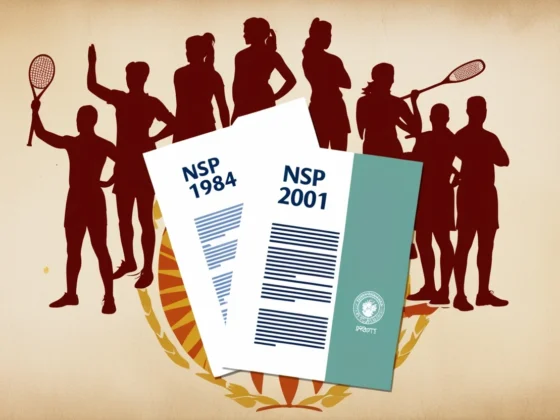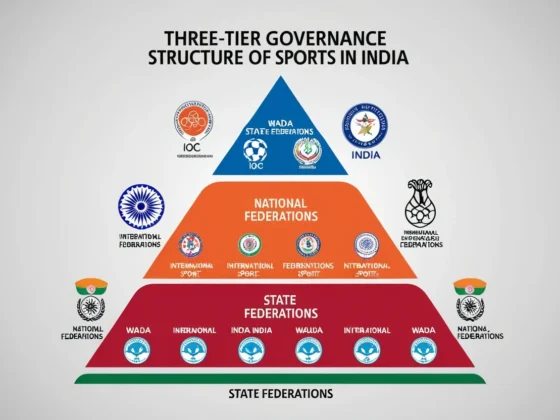The National Sports Policy 2007 was formulated to address the shortcomings of previous policies and to respond to new challenges in the 21st century. Building upon the frameworks laid by the 1984 and 2001 policies, NSP 2007 emphasized a multi-dimensional approach to sports—one that integrates community development, education, science, business, and ethics.
Key Objectives and Focus Areas
NSP 2007 set out to rejuvenate Indian sports institutions and develop an inclusive sports ecosystem. Its goals included:
- Holistic development of individuals through sports
- Youth engagement and community building
- Integration of physical education into school curriculum
- Addressing access gaps in rural and underprivileged areas
- Creating a sports-friendly culture at the workplace and in daily life
Addressing Systemic Deficiencies
The policy identified several persistent issues, such as:
- Inadequate access to sports facilities, especially for rural populations and the urban poor
- Gender disparities in participation
- Lack of disabled-friendly infrastructure
- Decline of indigenous sports
- Overemphasis on academics with minimal attention to physical education
Reforms and Institutional Restructuring
NSP 2007 proposed reforms to revamp the Sports Authority of India (SAI), Indian Olympic Association (IOA), and National Sports Federations (NSFs). The government tasked these institutions with ensuring transparency, equity, and democratic functioning. It also prioritized underrepresented sports like swimming, athletics, and gymnastics.
Ethics and Scientific Support
One of the standout features of the 2007 policy was its recognition of ethical and scientific dimensions in sports. It called for strict anti-doping measures in line with WADA and UNESCO conventions, and for the integration of sports science, including medicine and nutrition, into training regimes.
Public and Private Participation
The policy highlighted the need for increased investment and involvement from both public and private stakeholders. It sought to expand opportunities in participatory, recreational, and competitive sports by creating incentives and reducing bureaucratic hurdles.
Conclusion
The 2007 National Sports Policy was a progressive step toward a sustainable, inclusive, and ethical sports ecosystem in India. By focusing on infrastructural development, institutional reform, and community engagement, it laid down a blueprint for modern sports governance that continues to shape India’s sporting future.
This Blog is written by Saumya Soni, advocate, Supreme Court of India.
For queries or collaborations, write to us at sportslegalorg@gmail.com

